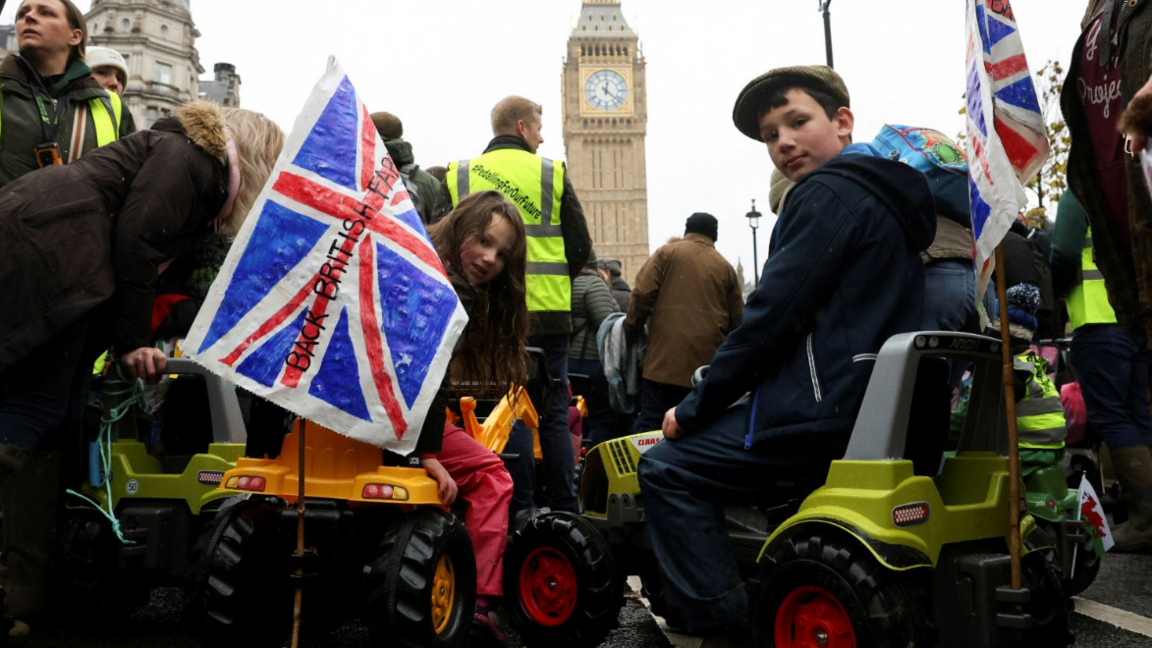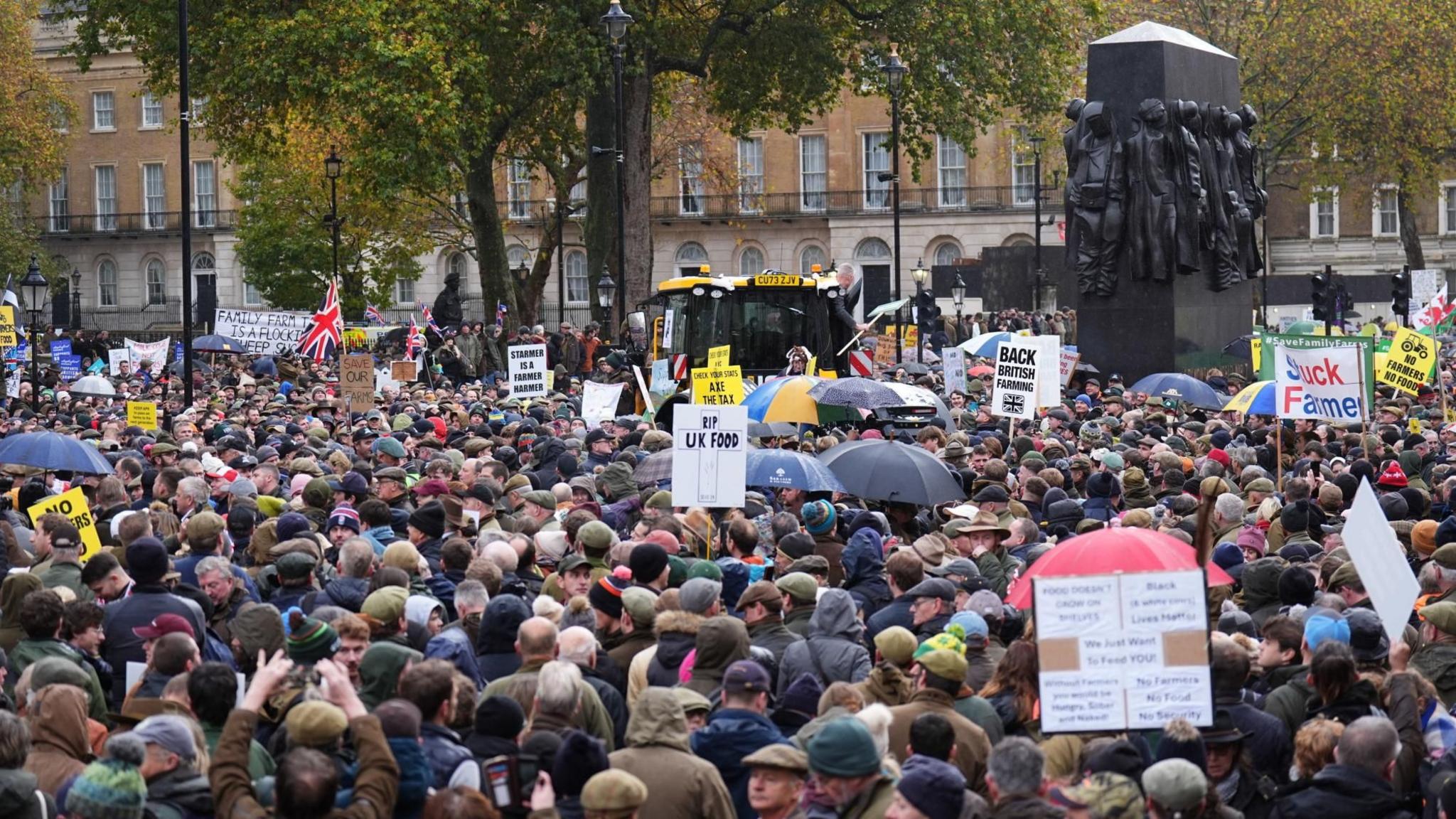Farmers protest changes to inheritance tax
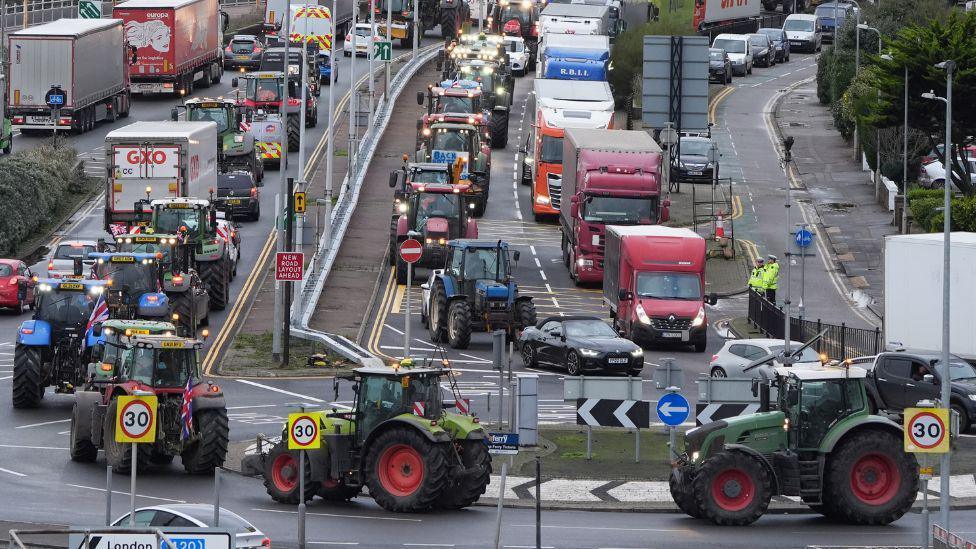
Dozens of farmers have staged a go-slow tractor protest on the roads of Dover
- Published
Dozens of farmers have staged a go-slow tractor protest on the roads of Dover over changes to inheritance tax.
The protestors called on the government to “stop betraying” British farming and rural communities.
From April 2026, inherited agricultural assets worth more than £1m, which were previously exempt, will be liable to the tax at 20%, half the usual rate.
The government said its plans offered a “fair and balanced approach”.
Farmers were seen driving alongside lorries in the Kent town with signs on tractors including “Stop Substandard Imports” and “No Farmers No Food No Future”.
Protest organisers Save British Farming and Fairness for Farmers campaign groups said the Labour government’s budget was a “hammer blow” to an industry already on its knees.
The groups called on ministers to axe inheritance tax, stop substandard imports and scrap carbon tax on fertiliser alongside other measures.
Kent-based beef farmer and protest organiser Matt Cullen said: “It’s time for farmers to stand up and fight back, and it’s time to show the government that things will escalate more if they don’t sit down and talk to us.”
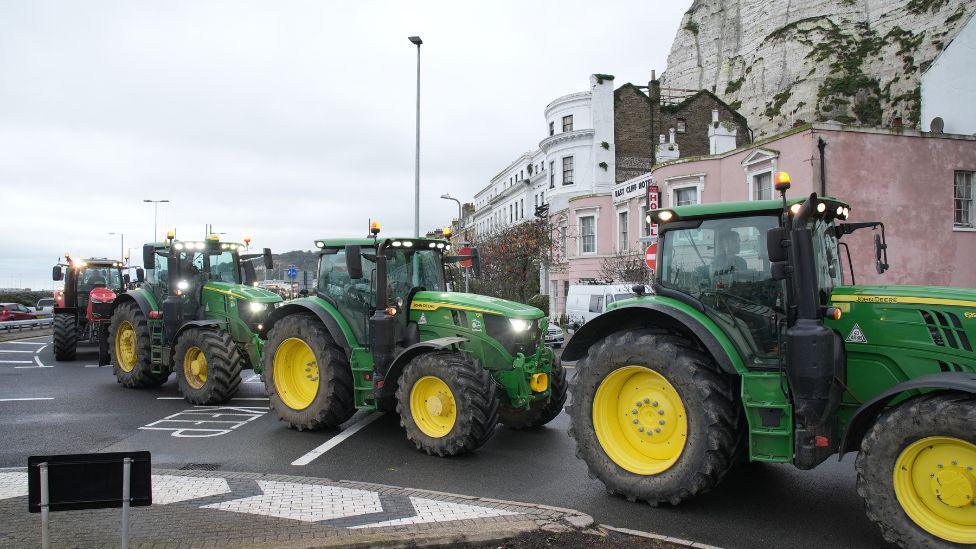
The protestors called on the government to “stop betraying” British farming
Save British Farming founder Liz Webster said: “This government has unleashed a really nasty culture war with their budget.
“Are they hoping to motivate envy to back destruction of our farms which produce healthy and sustainable food and care for our countryside to sign a deal with Trump which delivers chlorinated chicken and hormone-fed beef?”
A government spokesperson said its reform to Agricultural and Business Property Relief would impact about 500 estates a year.
“For these estates, inheritance tax will be at half the rate paid by others, with 10 years to pay the liability back interest free. This is a fair and balanced approach which fixes the public services we all rely on,” they said.
National Farmers’ Union (NFU) president Tom Bradshaw said the organisation was not involved the protest, but it supported it.
Thousands of people also protested in London last week over the changes.
The prime minister previously said he understood farmers' concerns, but added "the vast majority" would be unaffected.
Government research suggests that an average farm last year made a profit of about £45,300 - although that figure may be overstated as it is based on a survey that excluded farms that bring in the least money.
The government says it will affect the wealthiest 500 estates each year, but the NFU and the Country Land and Business Association (CLA) have estimated up to 70,000 farms worth more than £1m could be affected.
Between 2021 and 2022, 117 farms with a value of more than £2.5m were inherited.
Follow BBC Kent on Facebook, external, on X, external, and on Instagram, external. Send your story ideas to southeasttoday@bbc.co.uk , external or WhatsApp us on 08081 002250.
Related topics
Related stories
- Published19 November 2024
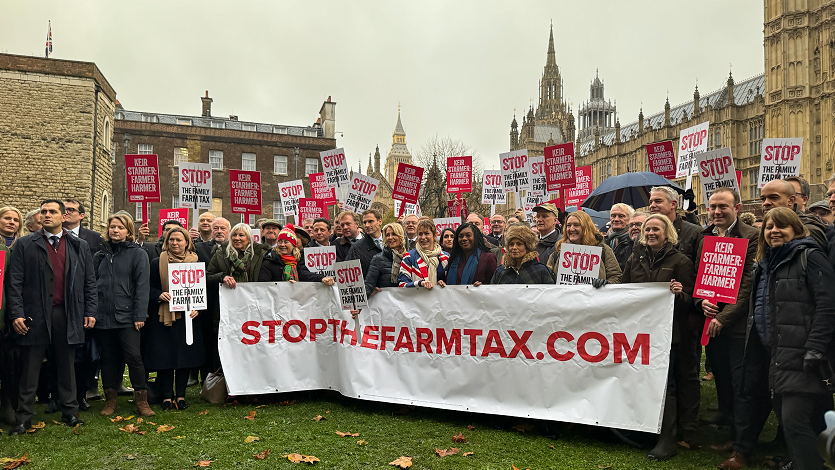
- Published20 November 2024
